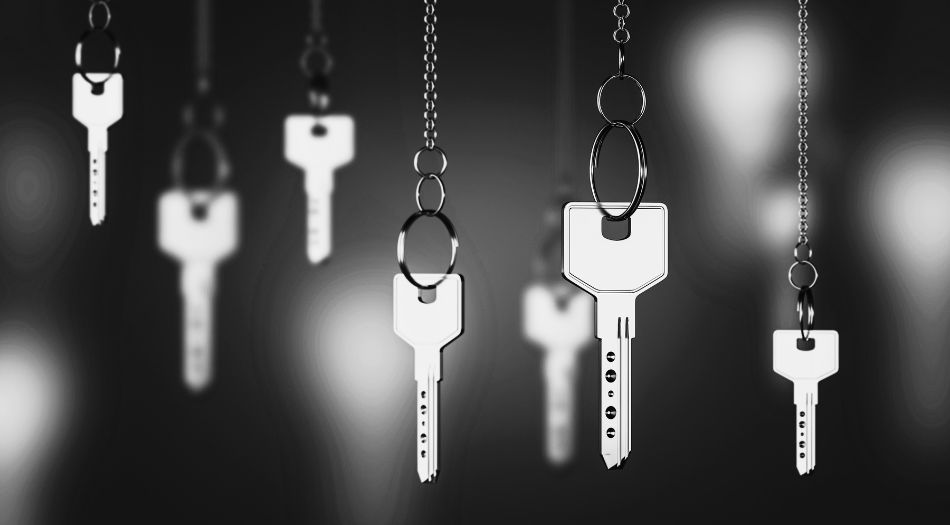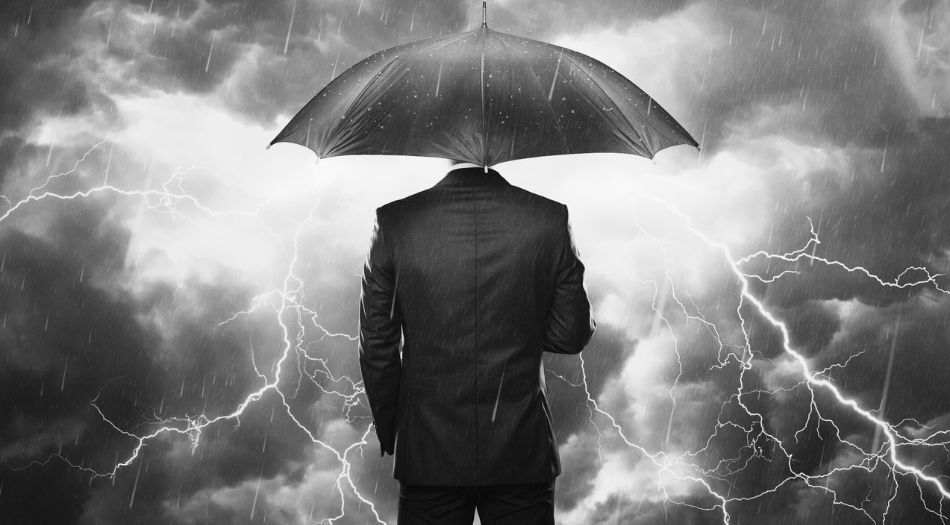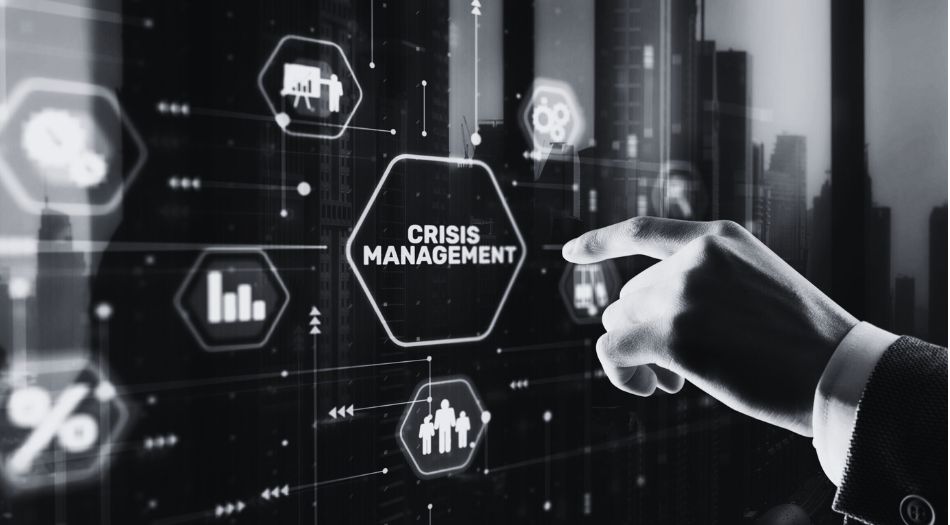Key Takeaways
- Public shaming is prevalent across digital media, with social media amplifying the spread and impact of humiliation, and traditional media shaping the public narrative through selective framing of events.
- Individuals can manage public shaming by pausing before responding, seeking professional advice, and employing strategic communication to ensure accurate public perceptions, while focusing on accountability and demonstrating personal growth.
- Maintaining mental and emotional well-being and managing one’s professional reputation are essential during public shaming incidents, which may involve legal action against internet-driven forms of shaming and rebuilding one’s online presence.
The Many Faces of Public Shaming
Public shaming can take various forms, affecting public figures in multiple contexts including social media campaigns and traditional media coverage. It’s like a multifaceted monster, with each facet reflecting a different medium of public humiliation.

Social Media Shaming
In the digital age, the town square has been replaced by social media platforms. The advent of social networking services has given rise to a new form of public vilification – social media shaming. This medium allows users to harass or mock others in an anonymous, democratic, and lawless manner. But why do people participate in online shaming, and what drives them to shame people?
Empirical data suggests that individuals with higher levels of empathy tend to have lower intentions to participate in online shaming, while emotional reactivity is slightly related to perceiving shaming as deserved but does not significantly correlate with the intention to shame. So, it seems that emotional characteristics play a significant role in whether a person will engage in social media shaming or not.
But what makes social media shaming so powerful? The answer lies in the platform itself. Social media platforms significantly amplify the effects of public shaming by facilitating the swift and wide distribution of negative information and judgments about individuals. A single tweet can spark a wildfire of public humiliation, turning the internet into a digital colosseum where the crowd bays for blood and the lions are always ready to pounce.
Traditional Media's Role
While social media offers an unchecked platform for public shaming, the news media, as a part of traditional media, plays a different role. Traditional media uses a technique known as media framing to structure narratives around public shaming incidents. By emphasizing certain details, traditional media can elevate select aspects of a shaming event to influence public perspectives.
This emphasis can impact public opinion, potentially exacerbating the social and personal consequences for those involved in public shaming. The role of traditional media in public shaming dynamics is significant, as it can perpetuate and potentially intensify the effects of public shaming. A news story can cast a long shadow, and when that shadow is shaped by public shaming, it can darken reputations and lives.
Other Internet-Driven Shaming
The internet, a vast digital landscape, offers more than just social media platforms for public shaming. Online shaming can manifest in various ways, such as call-outs, cancellations, doxing, negative reviews, and revenge porn, all of which can significantly impact other internet users.
These forms of online shaming can have serious consequences for internet users who are shamed online. Each of these forms of internet-driven shaming has unique consequences and challenges.
Consider the following acts of online shaming:
- Doxing – the practice of researching and broadcasting personal information about an individual often intended to harm them.
- Revenge porn – the non-consensual sharing of sexually explicit material to humiliate a person.
- Negative reviews on platforms such as Yelp, Google Maps, and Trip Advisor, which can publicly shame businesses.
- Anonymous sharing of non-consensual explicit material on revenge porn websites and social media expose groups.
These acts of online shaming allow individuals to express hostility without direct confrontation, increasing the likelihood of causing harm, such as death threats.
The lack of personal proximity in internet shaming reduces both the discomfort of witnessing the victim’s suffering and the shame experienced by the perpetrator. This impersonal aspect of internet-driven shaming individuals can exacerbate its impacts, making it an especially harsh form of public humiliation, akin to public punishment.
Responding to Public Shaming: A Guide
”Public shaming in the digital age is a harsh reality that can have profound and lasting consequences on individuals’ lives. At Scandal Coach, we recognize the destructive power of online humiliation and its far-reaching effects on mental health, relationships, and careers. Our approach is rooted in empathy, understanding, and strategic action to help individuals navigate the tumultuous waters of public scrutiny. We offer a safe harbor amidst the storm, guiding our clients towards healing, resilience, and redemption in the face of public shaming.”
As daunting as being publicly shamed may seem, it’s not an insurmountable challenge. There are strategies and tools that can help individuals navigate the stormy waters of public humiliation.

Addressing Social Media Shaming
When facing the typhoon of social media shaming, the first step is to take a pause. This pause allows one to evaluate the context and validity of the shaming, consulting with advisors or professionals as needed. During this time, it’s important to resist the urge to respond immediately. A hasty response can fuel the fire of public shaming, while a thoughtful, measured response can help douse the flames.
If the shaming is based on valid issues, it’s crucial to respond with a sincere apology that addresses the concerns raised, shows understanding, and demonstrates a commitment to change. However, it’s also important to determine the constructive potential of engaging with shamers. In cases of baseless attacks or trolls, ignoring may be the best strategy, possibly including taking social media profiles offline temporarily.
An essential part of addressing social media shaming is demonstrating accountability. Here are some steps to take:
- Admit mistakes and take responsibility for them.
- Take concrete steps to prevent future issues.
- Rebuild public trust by showing a commitment to growth and change.
Accountability isn’t about winning the approval of shamers. It’s about owning one’s actions, making amends, and showing a commitment to growth and change.
Navigating Traditional Media Coverage
When public shaming hits the traditional media, a different approach is required. Working with a public relations (PR) professional during public shaming can help develop an effective strategy to address traditional media coverage. PR experts are skilled in crafting statements that show accountability while protecting one’s reputation.
Timely responses to media inquiries are essential to avoid speculation and further negative coverage, but these responses must be thoughtfully crafted. Providing an exclusive interview or statement to a reliable journalist can assist in controlling the shaming narrative. Media handling techniques and training for potential interviews can enhance communication effectiveness during public shaming crises.
The goal here is not to control the narrative, but to ensure that the narrative is accurate and fair. After all, in the court of public opinion, perception often trumps fact. And when it comes to public shaming, ensuring that the perception aligns with the truth is half the battle won.
Dealing with Other Internet-Driven Shaming
When dealing with other forms of internet-driven shaming, a robust and proactive approach is necessary. Here are some steps to take:
- Document shaming incidents for legal purposes.
- Work with platforms to remove offensive content.
- Understand your legal rights if you are a victim of specific online shaming types, like revenge porn.
- Take action by sending takedown requests to websites hosting the content.
Rebuilding one’s online reputation is another crucial aspect of dealing with internet-driven shaming. This can be done by:
- Creating professional websites and personal blogs with positive content
- Disabling comments to prevent further negativity
- Using services like Reputation.com to fix negative search results and rebuild online reputation
These steps indicate proactive measures toward rehabilitation and serve as notable examples.
Finally, publicly outlining a plan for personal growth or restitution after a shaming incident demonstrates accountability and a commitment to change. It’s about showing that you’ve learned from the experience and are committed to doing better.
When to Stay Silent
Based on direct encounters with public shaming scenarios, there are instances where the severity and scale of the attacks necessitate a strategic decision on whether or not to engage with the narrative. Through consultations with legal advisors and public relations professionals, a collective determination is often reached to maintain silence in the face of relentless scrutiny. The media frenzy, spanning across various platforms and regions, presents a formidable challenge where attempts to present a counter-narrative may only fuel the fire of sensationalism. Opting for silence becomes a strategic choice, shielding against the potential amplification of negative publicity. However, this raises broader questions about decision-making authority and the collaborative process involved in navigating such crises. As in all cases of public shaming, having a steady team around you is of paramount importance.

Maintaining Composure During Public Shaming
“Maintaining composure during public shaming is both an art and a necessity. At Scandal Coach, we understand the intense pressure and emotional turmoil that accompany being thrust into the spotlight of scrutiny. Our approach is centered on equipping individuals with the tools and mindset to navigate these turbulent waters with grace and resilience. We empower our clients to reclaim their narrative, stay grounded in their values, and emerge from the storm stronger than ever before. In the face of adversity, composure becomes a beacon of strength, guiding us towards a brighter future.”
While dealing with the external aspects of public shaming is crucial, it’s equally essential to maintain composure internally.
This involves focusing on mental and emotional well-being and managing one’s professional reputation during the shaming incident.

Mental and Emotional Well-Being
During a public shaming incident, one’s mental and emotional well-being often takes a severe hit. But resilience and high self-esteem are fundamental for bouncing back from public shaming, as they enable individuals to value themselves irrespective of others’ negative perceptions. Understanding that failure often stems from incompatibility rather than personal flaws can make the experience of public shaming feel less personal and more controllable.
Taking time to engage in enjoyable and fulfilling activities can provide a much-needed break from the pressures of public shaming. A walk in the park, a good book, a cup of coffee with a friend – these small acts of self-care can offer a respite from the storm, giving you the strength to face it again.
A strong support network, including family, friends, and respected colleagues, is essential for emotional comfort and practical advice in recovering from public humiliation. Finding the right balance between being open and taking time for self-care is critical to dealing with the distress and maintaining well-being amidst public shaming.
Professional Reputation Management
Public shaming doesn’t just impact one’s personal life – it can also affect one’s professional reputation. When workplace humiliation occurs, confronting the issue professionally through HR channels or directly addressing the offender using ‘I’ statements to communicate impact can help manage one’s professional reputation.
Maintaining professional composure when dealing with humiliation at work can earn respect from colleagues, affirming one’s right to respect and escalating appropriately if needed. Focusing on future planning without dwelling on humiliating experiences aids in professional resilience, considering broader contexts such as institutional biases when framing a response.
Professional accountability involves proactivity, solution-oriented approaches, preparedness, and constructive responses to criticism, enhancing one’s stature in the professional environment.
A professional online presence, especially on platforms like LinkedIn and managing your social media accounts, is crucial for reputation management, and personal apologies or statements about incidents come off as more sincere when delivered face-to-face.
Effective Communication During Public Shaming
In the midst of public shaming, effective communication can be a lifesaver. It can help to clarify misunderstandings, express remorse, and show a commitment to change.

Crafting Clear Messages
Crafting clear messages during public shaming is of utmost importance. Here are some steps to follow:
- Take time between the incident and response to gather your thoughts and emotions.
- Document the facts of the situation to ensure accuracy.
- Consult with trusted colleagues for unbiased feedback and advice.
- Craft clear, concise messages that leave no room for misinterpretation.
- Use these messages to clarify intentions or offer a sincere apology, if necessary.
Following these steps will help you navigate public shaming situations with clarity and professionalism.
In addition to crafting clear messages, it’s also important to correct any misinformation that might be circulating. This can be done through official statements or press releases, ensuring that the public receives accurate information.
Utilizing Appropriate Channels
The choice of communication channels plays a significant role in effective communication during public shaming. Face-to-face interactions are often more effective in showing remorse and rebuilding trust, compared to digital apologies, due to their personal touch.
Even in the digital age, understanding human behavior shows that the human touch goes a long way in mending fences. So, whether it’s a face-to-face meeting, a phone call, or a personal letter, ensure that your communication method matches the gravity of the situation and the expectations of your audience, as human beings still value personal connections.

Demonstrating Accountability
Accountability is a crucial aspect of effective communication, particularly in the era of call out culture, where public shaming has become more prevalent. It’s important to differentiate between personal shaming and legitimate criticism that targets performance and teamwork. A clear message addressing public shaming should directly tackle the issue without deflecting blame to maintain sincerity and avoid exacerbating the situation.
When apologizing in response to public shaming, specificity regarding the actions being apologized for is necessary to prevent perceptions of evasiveness. It’s not enough to say, “I’m sorry if I offended anyone.” You need to specify what you did wrong, why it was wrong, and how you plan to make things right.
Demonstrating accountability can be a vulnerable experience that requires emotional intelligence and fosters personal and communal growth. Accountable individuals set clear expectations, acknowledge their mistakes, and focus on strengthening their skills to prevent future issues.
Navigating Public Shaming with Scandal Coach
“Navigating the tumultuous waters of pubic shaming demands more than mere resilience—it requires a trusted guide. As Scandal Coach, we serve as anchors amidst the storm, offering unwavering support and strategic counsel to those navigating the treacherous currents of public scrutiny. With our guidance, individuals can transform moments of crisis into opportunities for growth, reclaiming their narrative and emerging stronger than ever before. In the face of adversity, having a Scandal Coach by your side is not just a luxury—it’s a lifeline.”
The journey through public shaming can be a lonely one. But it doesn’t have to be. Scandal Coach specializes in guiding individuals through the personal and professional challenges that arise from public shaming incidents.

The Role of Scandal Coach
Scandal Coach provides objective support to individuals experiencing public shaming. We act as an unbiased third-party, offering guidance that helps the individual navigate challenges without the influence of internal dynamics. In the midst of public shaming, having an objective, unbiased voice can be a beacon of sanity in a sea of chaos.
In addition to providing support, Scandal Coach also aids in developing strategies to manage and overcome the challenges posed by public shaming. These strategies are tailored to the individual’s unique circumstances and needs, ensuring that they’re equipped to handle the situation effectively.
The role of Scandal Coach includes:
- Providing advice, guidance, acting as a neutral sounding board
- Navigating the storm
- Being a guiding light in the darkness
- Being a steadfast ally in the battle against public shaming
- Remaining empowered in all your interactions/communications in the face of your mental/emotional state
- Dealing with the fallout of those associated with you – ie guilt by association
- Coaching real-time into any dynamic that impacts your state
Benefits of Working with Scandal Coach
Working with Scandal Coach offers several benefits, particularly for those navigating intricate personal challenges and managing professional difficulties during public shaming scenarios. For those in the throes of public shaming, Scandal Coach can be a lifeline, offering support, guidance, and practical solutions.
One of the key benefits of working with Scandal Coach is the ability to navigate personal challenges. Public shaming can be a deeply personal experience, and having a professional by your side to guide you through it can make all the difference.
In addition to personal challenges, Scandal Coach also provides strategies for managing professional difficulties that accompany public shaming scenarios. We can help you navigate the complex maze of public relations, media inquiries, and reputation management, ensuring that your professional life remains intact even in the face of public shaming.
Scandals & Public Shaming: The Reality
Public shaming, in all its forms, is a harsh reality in our digital age. From social media campaigns to traditional media coverage, it affects individuals and businesses alike in profound ways. However, there are tools and strategies that can help navigate the stormy waters of public humiliation, from addressing social media shaming, navigating traditional media coverage, to dealing with other forms of internet-driven shaming.
Maintaining composure during public shaming is crucial, focusing on mental and emotional well-being and managing one’s professional reputation. Effective communication plays a critical role in this process, from crafting clear messages, utilizing appropriate channels to demonstrating accountability. In this journey, a Scandal Coach can provide invaluable support, guiding individuals through personal and professional challenges.
Public shaming is a reality of the digital age, but it doesn’t have to be a life sentence. With the right tools, strategies, and support, individuals can navigate the storm, weather the waves, and come out stronger on the other side. Remember, the storm doesn’t last forever, and every wave, no matter how big, eventually breaks.
Public Shaming: Your Next Steps
In today’s digital age, public shaming has become a prevalent social phenomenon, spurred on by the rise of social media and online communities. It can have far-reaching consequences, affecting both individuals and organizations alike. The psychological and professional impacts of public shaming are significant, often resulting in profound distress and reputational damage.
At Scandal Coach, we’ve witnessed firsthand the toll that public shaming can take on individuals and businesses. Our mission is to guide and support those navigating these turbulent waters, helping them emerge from the experience stronger and more resilient than ever before. With our proven strategies and compassionate approach, we empower our clients to reclaim their narrative and move forward with confidence.
To learn more about our process and how we can help you navigate the challenges of public shaming, download our guide today. It’s time to take control of your story and chart a course towards a brighter future.




